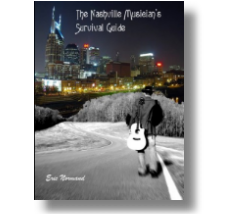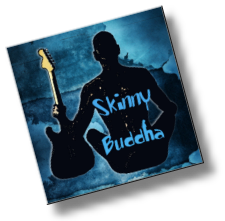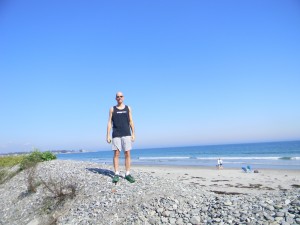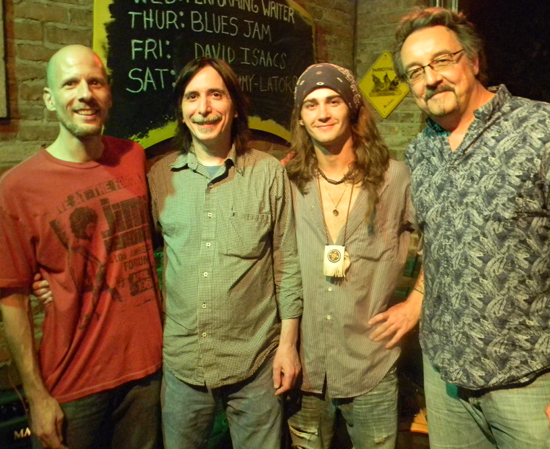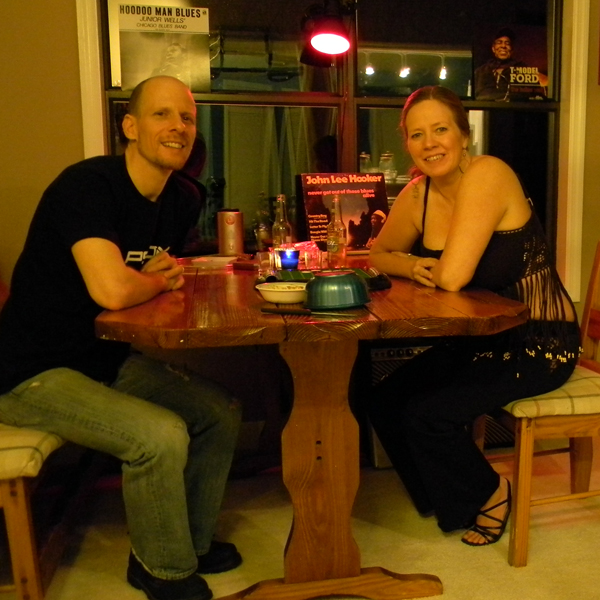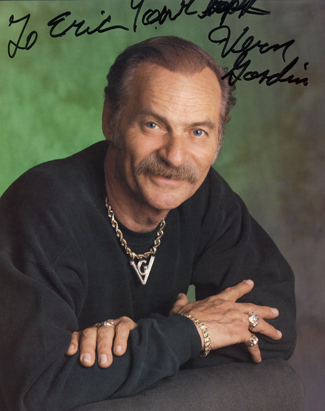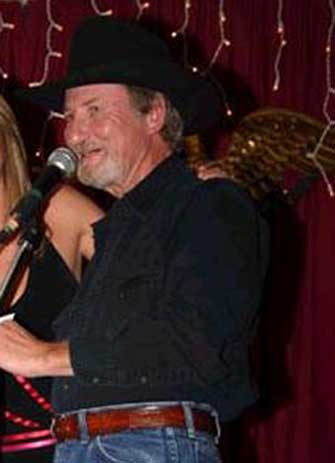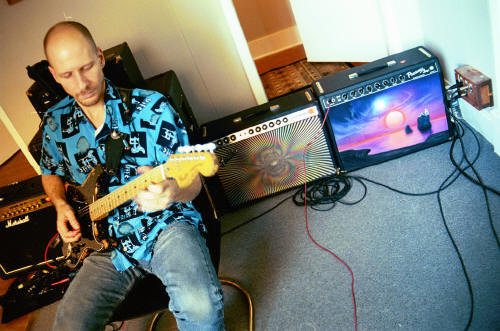
During the last Nashville Berklee Jam to be held at The Rutledge, which sadly closed its doors shortly thereafter, international rock star, author, and motivational speaker, Zoro addressed a room full of hungry musicians with a heartfelt, life-changing talk. Well known as a professional drummer who’s played with the likes of Lenny Kravitz, Bobby Brown, and Frankie Valli, among countless others, Zoro, often referred to as “The Minister of Groove”, is also an educator who has given hundreds of clinics and authored the critically acclaimed “The Commandments of R&B Drumming”. He’s also known in the world of motivational speakers, having given hundreds of talks and authoring the book “The Big Gig – Big Picture Thinking for Success”.
But tonight’s talk was not about drumming, and while it delved into the world of professional musicians and artistry, at the core of this talk was a universal message that applies to all humans, that of finding your purpose in the world by discovering and maximizing your strengths. After his talk I was honored to participate in a performance with Zoro and A-list Session bassist, Mike Chapman. There’s a video of Zoro’s talk and some of this performance at the end of the article. Here are a few excerpts from his talk: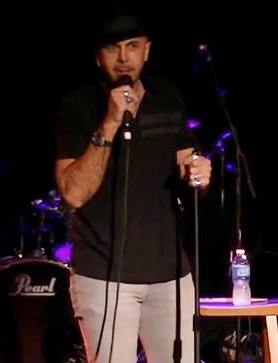
“The world has changed more in the previous 50 years that it has in the last 5000…. but there’s a few foundational things that I think will never change…Each person in this room is born is born with a certain gift and a certain talent. And for many of us, it’s musical talent. What will not change is excellence…no matter where the world goes or where music is headed, to me, if you have a musical gift, the most important thing is to exercise it, to develop it and to make it, point blank, excellent… I always feel that if you do something really, really well, eventually there’ll be a place for it somewhere. In a world where people don’t do things on a high level anymore, I still think that being excellent will make you stand out amongst the crowd…”
He spoke of diversity and the need to hone in on your strengths:
“I think each person here has more than one ability. I think your musical ability is one of them, but I think there are many. For me, I just pursued things that were naturally instinctive to me and interested me naturally. I wasn’t thinking business, I wasn’t thinking in 30 years I can be drumming, and be an educator, an author and speaker… I was thinking ‘I like writing… I’d like to write an article to help people. I like teaching’… so everything became a natural evolution of things I was already good at… so don’t worry about what you’re not good at, there’s going to be plenty, find out where your strengths are and then work on turning those into something that’s really monumental and excellent.”
I loved his take on marketing:
“The best marketing tool in the whole wide world is to just be bad-ass at what you do…because other people will tell people about you… people take notice of excellence, whatever it is. How many of you, when you go to a restaurant, take notice of someone who is an excellent server? We all notice when people do a good job…when I see a movie that’s great I tell everybody about it, but when I see one that sucks I also tell everybody don’t go waste your money.”
Often overlooked in the music industry as well as many others is the shortage of, and need for extreme professionalism:
“Some of the things it takes to succeed are very practical, but I find they seem to slip by the musical community. Things like; being on time, coming prepared, having your stuff together, being reliable… half of success is just showing up on time and just being ready. These things to me are totally obvious, but they seem to slip by a lot of the people that are creative.”
Perhaps one of the most important points he makes is that We Are in the Service Industry!
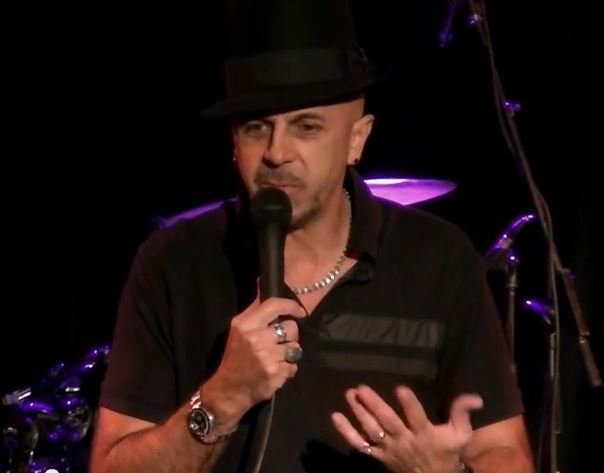 “Be accommodating. I look at everything that I do as really one thing, I’m a servant. I’m here to serve. Tonight I’m here to serve with my words, and I’m here to serve with my playing. I’m never here to be served, always here to serve… a lot of people have a perception of rock ‘n roll and fame… everyone’s catering to you and everyone’s worshiping you… there is an element of that that’s true, but I don’t perceive it that way. I perceive it as I have an opportunity and a platform, and an opportunity of privilege to serve people… I’m either serving the artist I’m playing with, or the crowd that I’m playing to.”
“Be accommodating. I look at everything that I do as really one thing, I’m a servant. I’m here to serve. Tonight I’m here to serve with my words, and I’m here to serve with my playing. I’m never here to be served, always here to serve… a lot of people have a perception of rock ‘n roll and fame… everyone’s catering to you and everyone’s worshiping you… there is an element of that that’s true, but I don’t perceive it that way. I perceive it as I have an opportunity and a platform, and an opportunity of privilege to serve people… I’m either serving the artist I’m playing with, or the crowd that I’m playing to.”
On creativity and vision:
“One of the greatest gifts human beings have… is the ability to dream… To dream up something that never existed and then to have the privilege of creating it is the greatest privilege in the world. And we all have that ability to dream and to believe that if we are willing to act on it and pursue it, we [can] turn that dream into a reality. It’s a great privilege and that’s what makes life really fascinating and interesting.”
He began a few words about the journey of self-discovery and life with a quote from Mark Twain:
“Most of us are anxious to be praised for the one gift that we don’t possess, rather than the 15 that we do.”
“If you don’t learn to enjoy the journey, the process, you’ll never enjoy life…the joy of life is in the process itself, and the journey of learning and growing and developing, that’s what life is…When people are not fulfilled it’s because they’re not moving toward something. You’re created to have purpose, to be moving forward in a direction towards the accomplishment of something.”
We’ve had many great guests speak at these events, all of them with unique angles, many catering to specific niches, and they’ve all been inspiring. This talk really got me thinking on many different levels and was one of my favorites to date. No matter what you do in life or what you do for a profession, many of life’s challenges and problems are universal. We can all work to discover our gifts, to hone them, to share them, to allow them to let us shine a little light in the world. Don’t let your dreams sit on the sidelines, find your gifts and make them excellent!
I would like to thank Zoro for sharing his words of wisdom and inspiration and for kicking out a great jam! I would like to thank Jeffrey Lien for helping me host this event and hooking us up with Zoro, the Rutledge and Andy Aquino for hosting our events for the past two years, Frank Sass for always providing great sound and lighting, and Jack Zander for capturing all the magic on video.
Zoro’s Talk (39 minutes)
https://www.youtube.com/watch?v=p0JPstlJAFQ&feature=youtu.be
Hear My Train A Comin’
https://www.youtube.com/watch?v=45iiMtKErwg&feature=youtu.be
Cissy Strut (with 5 minute drum solo)
https://www.youtube.com/watch?v=bXtXOzt5jNA&feature=youtu.be
It’s the first week of this brand-new year of 2013 and, not that I believe in New Year’s resolutions, one of the things I’m going to try to do differently in this new year is to get back to blogging more regularly. In that spirit, I also want to learn how to write shorter blogs. Let’s see how I do at my first attempt.
2012 was an interesting year, a lot happened in our world. A long-winded, and divisive election season came and went, it was one of the most extreme years of extreme weather since record-keeping began; our military is still in the midst of several conflicts around the globe; the tragic Sandy Hook shooting in Connecticut terrified us all, gun control is now a national conversation, and Facebook is still here after a disastrous stock market ploy.
I also had a few big moments. I played a handful of shows with The Peach Pickers (Rhett Akins and Dallas Davidson) on the sold-out Luke Bryan Farm Tour (you can read more about that adventure here), I hosted a monthly Berklee Alumni Jam, got to play music with Jack Pearson (read “Jack Pearson at the Nashville Berklee Jam) and Reese Wynans (read “Stevie Ray Vaughan keyboardist, Reese Wynans talks at Nashville Berklee Jam”), I ran in my first-ever 5K road race, met a lot of cool people, listened to a lot of great records, and cooked and ate a lot of good food!
I’m not sure what lies ahead in 2013, I’ve got a lot of big ideas and plans – we’ll see what happens. One thing that’s on my 2013 to-do list is to get out on the town little more often. After 23 years of being a professional musician I found that it’s still easy to get myself off the couch for a gig, but much harder to just go out and hang. I’m going to try to change that. I plan to still host the Berklee Alumni Jam (we are now going to be doing it quarterly). Thanks to my wife, Kelly, I’ve learned to enjoy running, and we are both training for our first half marathon in April. I’m trying to reassert myself into my musical craft, to take another step, and therefore practicing the guitar and vocals daily and learning new material is a top priority. Basically, I’m trying to stay healthy, inspired, and viable, while trying to help a few folks along the way.
So that’s about it for now. Let me know what you’ve got going on and don’t be afraid to drop me a line. I hope this New Year brings much happiness and success to you and your family. Thanks for reading!
Guitarist, singer, songwriter, producer and session-musician, Jack Pearson shared some unique perspective about his musical journey with a room full of Berklee alumni and others from the Nashville music community last Tuesday. The Nashville Berklee Jam, held monthly at the Fillin’ Station in Kingston Springs, saw some new faces and old friends on this special night, and Jack’s decades of experience as a world-class musician provided a rare peek behind the curtain for all those in attendance.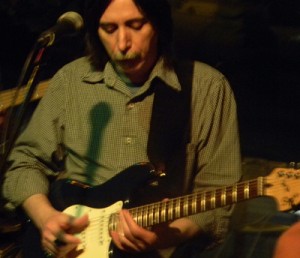
Jack’s musical career began in the mid 1970’s, when he played in multiple bands and logged his first recording session at age 16. In 1993 the Nashville native began his relationship with The Allman Brothers Band as a sub for Dickey Betts, eventually becoming a member of the ABB from 1997-1999 and also touring with Gregg Allman & Friends. Over the years he’s also worked with Vince Gill, Delbert McClinton, Jimmy Buffett, Earl Scruggs, Bobby “Blue” Bland, Amy Grant, Faith Hill, Gov’t Mule, Buddy DeFranco, and countless others.
Jack began his part of this night by playing some beautiful sketches of “I Can’t Get Started”, and for those who have never heard him play, his ability to transport an audience through time and space with nothing other than an unaccompanied electric guitar became quickly apparent. Following the spontaneous applause, Jack cut straight to some Q & A. One of the first questions asked was about his guitar, and I found it interesting that the deep, rich tone coming out of our backline Fender Deluxe originated from a Fender “Squire” Stratocaster, which he had recently bought for $100 at a pawn shop. Plugged into nothing other than a lone tube screamer, this drove home the point that great tone comes from within.
Learning from his oldest brother, Jack was exposed to rockabilly and blues as a teenager and explored the music of Chuck Berry, The Ventures, and Carl Perkins at a young age before eventually discovering jazz greats like, Wes Montgomery, Django Reinhardt, and Charlie Christian. Learning from friends, other musicians, and records, he slowly pieced together his musical vocabulary. He shared some thoughts on how to approach a II-V turnaround, demonstrating some different voicings and melodic approaches, underscoring the importance of putting song and melody above the technical understanding of modes and scales.
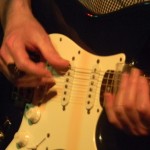 “It takes a lot of experimenting… a lot of guys come to me that get out of school and they say, “when I hear this chord I’m supposed to play this mode and scale”, and it locks them up. They can’t make any melodies because they’re told to play a mode or a scale.”
“It takes a lot of experimenting… a lot of guys come to me that get out of school and they say, “when I hear this chord I’m supposed to play this mode and scale”, and it locks them up. They can’t make any melodies because they’re told to play a mode or a scale.”
This simple, but prophetic thought resonated, and I had flashes to a time in my life when I over analyzed the music I played. Jack drove this point home with “…it comes down to the chord and the melody and where it’s going to…”
He went on to talk about the blending of styles and how he went through different periods of his life where he would be deeply immersed in a singular style for a few years – Delta blues, jazz, etc., and that after a while, all these different styles started coming together. Not afraid to take some chances musically, he demonstrated how he might go from a Howlin’ Wolf lick to a Charlie Parker lick within the same phrase, and that while some players will say this is wrong, he believes that “the main thing is to get the music out, and play with feeling.”
In response to a question about some of his best and worst gigs, Jack said that some of the worst gigs are when people don’t listen, and the music that you play with somebody is more important than the venue, or how famous somebody is.
He explained how learning all of the Allman Brothers songs as a kid helped put him in the position to sub for Dickey Betts on an early 90s Allman Brothers tour, which led to some recording with Gregg Allman and eventually to a phone call from Greg in which he was asked if he wanted to join the Allman Brothers band.
He candidly shared how this landmark gig damaged his hearing, causing an already existing case of Tinnitus to worsen, ultimately forcing him to leave the gig, perhaps sooner than he otherwise would have.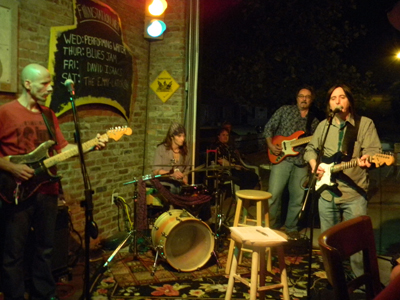
“There’s really no way to describe how loud it was on stage…Dickey Betts wasn’t in the PA…he was 135 dB side stage…”
As a fellow tinnitus sufferer I completely related to this portion of his talk and gained some new perspective as he explained that, despite wearing earplugs, extreme SPL’s (sound pressure levels) can still do damage, as the sound can affect your inner ear by entering your nose, mouth, and through your bones.
In response to a question about life lessons learned through music he answered, “Try not to take music for granted, it’s so special, and you can reach so many people…lyrics can encourage you, relate to your pain, but you can also do it with notes.” He demonstrated this by showing how the same group of notes can sound happy, or sad depending on where the emphasis is placed. He talked about the endless possibilities of how you can play even a single note, demonstrating this concept by playing a huge range of variances on a high “G” note.
After Jack’s talk concluded he played a short set with our Alumni House Band, the air becoming filled with the sounds of spontaneous applause after each inspired performance. Jack left shortly after his set, and the other alums in attendance continued jamming into the night. I, and everyone else in attendance would like to extend our appreciation and gratitude to Jack for sharing his music and journey on this special night!
Our next Nashville Berklee Jam will feature country music artist and hit-songwriter, Rhett Akins on Tuesday, September 11 at The Fillin’ Station. For more info, go to www.nashvilleberkleejam.com.
I can’t tell you how excited we are to be finally about to embark on our first trip to our native homeland of New England in seven years. I’m sorry we haven’t gotten back sooner, it’s not because we haven’t wanted to, it just seems that whenever we’ve had the time we didn’t have the money (we call this Nashville winter), and when we’ve had the money, we didn’t have the time (Nashville summer). So this year, with my 25th high school reunion taking place at the end of July, we decided this was the perfect excuse we needed to block out a week in the middle of the summer and pay our old friends a visit.
Somewhere in the middle of planning this trip I got the idea to do a clinic at “The Music Workshop,” a music store in Salem, NH that I used to frequent in my younger days. My idea was that this would be a great way to share some of my Nashville experiences with my peers in New England, while, of course, promoting my new book “The Nashville Musician’s Survival Guide.” I’m not sure how this happened, but before I knew it, I was booked at four different workshops throughout New England (some of you may have noticed my recent series of Facebook event invitations). With all this activity evolving I thought it would be cool to throw in a special show with some of my musical comrades from back in the day, and this has led to the Eric Normand and Friends Reunion Concert at Wally’s Pub on Hampton Beach, on Wednesday, August 3rd at 8:00 PM.
There is a complete listing of all these workshops and events with addresses and weblinks on the new events page of my survival guide website. Here is the longhand version plus some info that’s not on the website:
Wednesday, July 27, 6:00 – 8:00 PM
The Nashville Musician’s Survival Guide Workshop 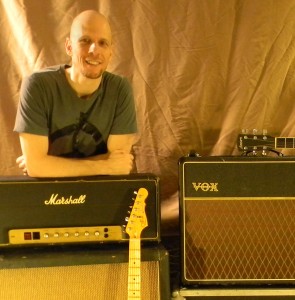
Ralph’s House of Tone, Dover, NH
During this workshop I will talk about what it has been like to work as a “hired gun” in the Nashville music scene, what it’s like to work on a national level tour, and some of the key differences and similarities between being a working musician in New England versus Nashville. There will also be a “Nashville guitar rig and style demonstration” and question and answer period followed by a book signing immediately afterwards.
Jam at the Station House in Dover
After the workshop, (which is free to the public) I will be attending a jam at The Station House Restaurant and Pub right down the street. The Station House usually has a jam on Thursdays, but when I contacted my old friend, Rick Landry, inquiring about any area jams on Wednesdays, he decided to put together this special jam just for this occasion, and I must say that I am quite honored. This jam will serve to be a kind of after party for the workshop and should be a great chance to catch up with some old friends and share a little music. Thanks Rick!
Thursday, July 28, 6:00 – 8:00 PM
The Nashville Musician’s Survival Guide Workshop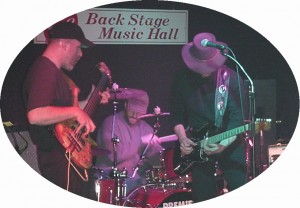
Buckdancer’s Choice, Portland, ME
This workshop will be like the one in Dover, only in Portland (also a free event). Before our move to Nashville in 2002, Kelly and I lived in Kennebunk, Maine, and at that time I played many shows throughout southern Maine with my band, Electric Blue. One highpoint during that period was our regular Sunday night jams at Chancery Lane in Sanford, ME, a truly magical musical moment that occurred weekly, and one that gave birth to many friendships and even a couple of bands. We hope to see some familiar faces in Portland on this night.
Monday, August 1, 6:00 – 8:00 PM
Music Skills for Life and Rhythm Section Workshop
Music Maker’s, Hampton, NH
This multifaceted workshop will be a little different than the previous two, and while I will share some of my Nashville experiences here as well, I will also spend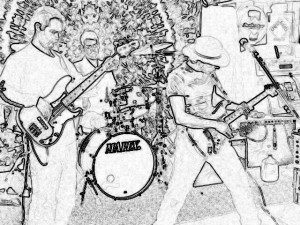 some time talking about some practical aspects about being a lifelong musician. The second half of this clinic will be an “interactive rhythm section workshop,” during which students will have the option to explore some fundamental basics of rhythm section performance with me and Music Makers instructors, Mark Davenport and Tom Martin. Music Maker’s is a seacoast area music school that offers private lessons on a wide range of instruments and the place in which I first began teaching guitar in the mid-90s. I’m excited to be returning to share some of what I have learned since that time with their next generation of students. This event is open to the public: cost: $20 per person – $15 for current Music Maker’s students.
some time talking about some practical aspects about being a lifelong musician. The second half of this clinic will be an “interactive rhythm section workshop,” during which students will have the option to explore some fundamental basics of rhythm section performance with me and Music Makers instructors, Mark Davenport and Tom Martin. Music Maker’s is a seacoast area music school that offers private lessons on a wide range of instruments and the place in which I first began teaching guitar in the mid-90s. I’m excited to be returning to share some of what I have learned since that time with their next generation of students. This event is open to the public: cost: $20 per person – $15 for current Music Maker’s students.
Jam night at Whippersnappers in Londonderry, NH
After the workshop, we are planning on attending the Monday night jam at Whippersnappers in Londonderry, NH, hosted by Gardner Berry of Mama Kicks. I used to jam with Gardner and other members of Mama Kicks back in the late 80’s/early 90’s when he hosted a Sunday night jam at Classics in Manchester, one of my first jam night experiences. Should be a lot of fun so come on out!
Tuesday, August 2, 7:00 – 9:00 PM
The Nashville Musician’s Survival Guide Workshop
The Music Workshop, Salem, NH
This will be the final workshop of this trip and similar to my clinics in Dover and Portland the week before. Salem used to be a big part of my stomping grounds back in the day and I used to frequent the Music Workshop regularly, constantly “experimenting” with new music gear, occasionally buying some. I also used to perform regularly at the old LJ’s in the Rockingham Mall, remember that place?
Blues Jam at the Roma in Haverhill, MA
After this workshop we are planning on attending a blues jam at The Roma in Haverhill, MA. My good friend and drummer extraordinaire, John Medeiros is part of the host band at this jam (John is also a former member of Electric Blue and will be part of my core band at Wally’s on the third.)
Wednesday, August 3, 8:00 PM – 11:00 PM
Eric Normand and Friends Reunion Concert
Wally’s Pub, Hampton, NH
This will be the last stop of our New England book tour/vacation and a very special night of music and reconnecting with old friends. It’s been seven years since we last set foot on Hampton Beach, and more than ten since I last performed their regularly. When we first started planning this trip I had the idea about doing a reunion concert of sorts and I called up and presented the idea to my old friend, Kenny Gaudet from The Bars, who fast became instrumental in making this happen. The first set will consist of me on vocals and guitar, John Medeiros on drums, Keith Foley on bass, and some friends from seacoast area jam band, Superfrog – Charles Cormier on guitar and 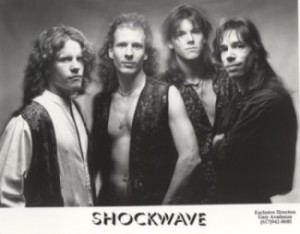 Adam Vinciguerra on percussion. A little later into the night there will be a brief reunion of my old band “Shockwave” with Doug Hinton on drums, Mark Gagnon on bass, and Keith Bowen on vocals (also possibly Brandon Lepere). Other guests will include Kenny Gaudet, Devin Cordero from Last Laugh, and possibly a partial “Jet City” reunion.
Adam Vinciguerra on percussion. A little later into the night there will be a brief reunion of my old band “Shockwave” with Doug Hinton on drums, Mark Gagnon on bass, and Keith Bowen on vocals (also possibly Brandon Lepere). Other guests will include Kenny Gaudet, Devin Cordero from Last Laugh, and possibly a partial “Jet City” reunion.
This night will mark the end of our week in New England and we are really looking forward to reconnecting with so many of our old friends and musician buddies. We are hoping to make this reunion concert an annual event, so if you like this idea at all, please come out and show some support. And for anyone who is interested in purchasing my new book, this will be your last chance before we head out of town, so if you have it in your heart to help us out with a little gas money for the ride home, pick one up, they’re only $20.
While we will be leaving Thursday morning to rejoin the Rhett Akins tour for shows in Ohio and Chicago, we will be back, and next time we won’t wait seven years! In the meantime, go ahead and make some plans to come out to the Wally’s show and a workshop or two, we would love to see you all again! See y’all real soon!
I’ve wanted to take a step with my vocal abilities for some time now and this year seemed like a good time to do it. A few months ago I dug out an old vocal method book, “The Rock ‘n Roll Singer’s Survival Guide” by Mark Baxter, a vocal coach I had studied with in Boston in the late 90s. After digging into it for a few weeks I came across one of the books many great recommendations – the importance of taking voice lessons from a vocal coach – and that was all I needed for encouragement.
I had recently heard some great things about Nashville-based vocal coach, Judy Rodman, so I decided to give her a try. In early March I took my first lesson at her home studio, a one hour session during which we covered a lot of ground. After discussing my current musical activities and goals, she began the lesson by demonstrating some “mechanics” about the human voice, partially aided by the use of models and diagrams. Then she took me through some warm-ups, all the while listening and observing my “habits.” Next, she had me sing a song of my choosing, and this is when it became even more apparent that she had a truly unique approach to vocal training.
After strapping on my guitar, she had me sing into a mic that was plugged into a couple of floor monitors to emulate a live gig. I don’t think I sang more than a verse before she told me to stop so she could address some issues. Apparently, years of guitar playing, combined with other “intellectual pursuits” had allowed me to develop some bad posture, posture that was restricting my vocal abilities. To begin correcting this, she had me sing while standing with my head and one heal up against the wall, while allowing my shoulders and back to be loose.
She also introduced some other concepts to improve my vocal “path.” One I found particularly enlightening was to pick an object or spot on the wall and imagine that it’s a person to whom I am telling a story. Another was to pretend I’m singing to a deaf person, to cause a deeper articulation of the words and phrases. Yet still another was to raise my eyebrows when I sing, as this expands “the cave” and will allow for a more resonant sound. By the time I left the lesson I was not only inspired to go home and practice, I had made an immediate and noticeable improvement.
Since that day I’ve taken a half-hour lesson every other week and have made great strides, and I actually look forward to practicing! Like any great music teacher or coach, Judy has a gift for custom tailoring each student’s approach and practice regimen; she quickly honed in on my problems and came up with the appropriate exercises and concepts to correct them, each lesson introducing new ones. If you live in middle Tennessee (or anywhere for that matter, as Judy also gives lessons over the phone or via Skype), and are in need of some vocal coaching, I highly recommend Judy, she is truly a vocal coach extraordinaire!
Well that’s it for today; it’s time to go sing!
Having grown up in the Northeast on a diet of rock and blues, and listening to very little country music prior to moving to Nashville, the name Vern Gosdin was not one I was familiar with. So when I got a late-night phone call in the fall of 2002 about playing a show with him, my initial reaction may have been somewhat muted. The call came from a producer named Kenny whom I had met a few weeks earlier at my house gig at Libby’s. He described the show as being a one-off with Vern to somewhere in Kentucky and asked me if I could put together and rehearse a band. Hungry for work, I accepted the show and began making calls to recruit players the next day.
One of the first calls I made was to D for some advice. “Vern Gosdin! Do you realize who he is?” he replied in amazement. “Well I know he had some success a few years back.” I replied unknowingly. “They call him ‘the voice’ of country. It’s like getting a gig with Merle Haggard. I’ve been here 10 years and I’ve never got to play with him.” a hint of jealousy riddled his voice. “He’s a real legend. This will be a great experience for you.”
D’s excited reaction prompted a little further investigation, which of course revealed that ole Vern was sure enough a bona fide superstar. 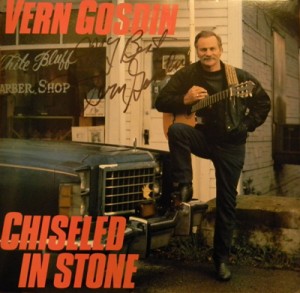 In a career that spanned over four decades, he had recorded somewhere around 20 albums yielding roughly the same number of top 10 hits. Now I began to get a little nervous. Always up for a good challenge, I began calling some of the better players I had met over the past couple of months. The role of a bandleader in Nashville, I quickly learned, puts one in the unique position of being able to offer work to other players, and in Nashville, work is something there is never enough of. Once people know you’re a bandleader, phone calls start getting returned with more expediency and other musicians seem to have more interest in you when you walk into a room (of course when things go wrong, you will be the first one everyone looks to).
In a career that spanned over four decades, he had recorded somewhere around 20 albums yielding roughly the same number of top 10 hits. Now I began to get a little nervous. Always up for a good challenge, I began calling some of the better players I had met over the past couple of months. The role of a bandleader in Nashville, I quickly learned, puts one in the unique position of being able to offer work to other players, and in Nashville, work is something there is never enough of. Once people know you’re a bandleader, phone calls start getting returned with more expediency and other musicians seem to have more interest in you when you walk into a room (of course when things go wrong, you will be the first one everyone looks to).
Within a few days I had put together a five piece band of the best players I could find consisting of Chip on drums, Sid on bass, Mark on keys, Brian on steel, and me on guitar. I obtained recordings of Vern’s material from his assistant, charted the songs, and dispersed these materials to the other players. As the show date grew closer, Vern’s assistant notified me that one rehearsal would be required the week of the show. I also learned that we would need to provide transportation for Vern to and from the rehearsal, as he no longer drove.
On the day of the rehearsal, a couple of the band guys that lived close to Vern’s home near Opryland stopped by to pick him up. My only encounter with Vern up to this point had been one brief phone call, and our discussion was so brief that I still had yet to gain a real sense of the man. Over the weeks leading up to this rehearsal I had begun hearing a few horror stories about Vern. Apparently, he had a penchant for firing drummers, at least according to the rumors, and had a reputation of being quite “ornery” from time to time. He had even been known to pull a gun on a few unsuspecting musicians over the years, supposedly.
This was not the Vern that I would meet later on that night. For into my house walked one of the kindest, sweetest fellows you could ever meet. He had a sense of humor too, as we all learned when I was the butt of his first joke on this night. “How are you feeling today?” he asked. “Great, thanks.” I replied. “Well it’s a good thing that you don’t feel like you look.” he responded as muted chuckles engulfed the room. This kind of dry humor was apparently typical for Vern as I would later learn.
I had rearranged my basement music room to accommodate this band rehearsal, and the limited space was quickly filled with gear and bodies. Once the gear was up and running, our rehearsal began. Another thing that I would later learn was that Vern had suffered a stroke in recent years, and this often impeded his communicative ability. Several songs were stopped short when he needed to convey different musical ideas – signature licks, key changes, intros, endings – he couldn’t always communicate exactly what he was thinking, but it became obvious that he knew his music well, and that he knew when something wasn’t being played right.
We did our best to make his songs feel right to him, and although the mood of this night was fairly upbeat, the rehearsal wound up being shorter than optimum for us, and longer than optimum for Vern. He was getting tired and called the night before we could get through all of the material, rendering it essential that the band be extra prepared for the gig.
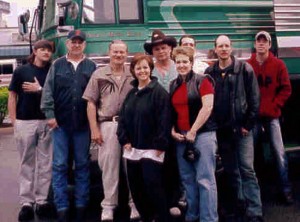 A few days later we all met at Fiddlers Inn near Opryland and hopped on a bus bound for a show in Kentucky. We rode the bus for a few hours before arriving at our gig where we loaded in, sound checked, and ran a few tunes. We did two shows that night in a midsized venue that was reminiscent of an old church out of yesteryear. The two sets were night and day by comparison, the first being quite bad as Vern was feeling a bit under the weather. We did our best to hold it together behind him, but it was a struggle. After a long break, during which Vern got some food and rest, we hit the stage again for our second and final show. Vern, now feeling much better, performed brilliantly. His sweet, resonant voice conveying a wide spectrum of emotions, I could now hear why he had been deemed “the voice” by so many. This strong vocal performance made it effortless for the band to follow him – We were on! The show ended to a strong applause and a room full of smiles. We had done what we had set out to do, and were on our way home.
A few days later we all met at Fiddlers Inn near Opryland and hopped on a bus bound for a show in Kentucky. We rode the bus for a few hours before arriving at our gig where we loaded in, sound checked, and ran a few tunes. We did two shows that night in a midsized venue that was reminiscent of an old church out of yesteryear. The two sets were night and day by comparison, the first being quite bad as Vern was feeling a bit under the weather. We did our best to hold it together behind him, but it was a struggle. After a long break, during which Vern got some food and rest, we hit the stage again for our second and final show. Vern, now feeling much better, performed brilliantly. His sweet, resonant voice conveying a wide spectrum of emotions, I could now hear why he had been deemed “the voice” by so many. This strong vocal performance made it effortless for the band to follow him – We were on! The show ended to a strong applause and a room full of smiles. We had done what we had set out to do, and were on our way home.
Over the next year I played a handful of dates with Vern, and remained as bandleader and guitarist through my tenure with him. About a year later I started working on a busy tour and could no longer do Vern’s dates. But during that time we had become good friends, and years later he still called me from time to time to say hi. He had a handful of jokes that weren’t particularly funny, that somehow made me laugh anyway. I would be walking around a supermarket or Wal-Mart and the phone would ring – “Hey son, it’s Vern, I’ve got to ask you something. Do you hear that sound?” “What is it?” I would ask. “It’s the sound of my boot hittin’ your ass!”
He would literally start out every conversation with a joke like this, and I would laugh every single time. Around 2008 I was fortunate enough to have a schedule that would allow me to do a few more shows with him. Then I heard the sad news in April of 2009 that he had died from complications due to another stroke. “The Voice” of country may have moved on, but his musical legacy remains a timeless testament to his greatness. And the Vern that I grew to know and love will always hold a special place in my heart. Even though I know he won’t be calling any time soon, I still keep his number in my cell phone, just in case.
It was the fall of 2002, I’d been in Nashville for a few months, and had just landed a weekend house gig at Libby’s Steakhouse in Kentucky, a great country music venue in which I could hone my chops. I was spending most of my days selling stuff on eBay, driving around to pawn shops looking for more stuff to sell on eBay, and practicing, practicing, practicing. My recent debacles on Broadway and at a recording studio on Music Row revealed to me that I had a lot of work to do, and this prompted me to get really organized about my practice regimen. While I was still going to downtown Nashville one or two nights a week to network, making the Tuesday night jam at the Fiddle and Steel a regular stop, these weekly outings on the town mainly served to build connections, not so much to sit-in. I needed to improve my country chops quite a bit before I would be comfortable enough to put myself out there on the chopping block again.
So every Friday around dinnertime I would set out for Daysville, Kentucky, sometimes accompanied by my wife, sometimes not. Each weekend outing at Libby’s would introduce me to new material, and I would obtain recordings of these songs to work on over the following week. In addition to learning these songs and other standards I heard around town, I was digging in hard to my technique in general, practicing country rhythm, chicken pickin’, Western swing and, to avoid losing any ground, a little rock, blues, and jazz as well. A friend of mine had given me a CD of some old-school country tele players, Bill Kirchen and Redd Volkaert aka the Twang Bangers, and I listened to and tried to mimic their lines, style, and feel. I also did the same with recordings of Alan Jackson that featured Brent Mason.
To create a challenging way to practice all these new techniques, I burned a mix CD comprised of several country, western swing, and bluegrass tunes. The 11 song guitar workout CD covered nine different keys, a variety of tempos, and several different feels (straight eighths, swing, etc).
|
Key |
Song |
Tempo/Feel |
|
D |
Goodhearted Woman |
slow eighths |
|
E |
Folsom Prison Blues |
medium eighths |
|
F |
Truck Drivin’ Man |
fast eighths |
|
Bb |
Chase Each Other Round the Room |
medium swing |
|
G |
How Mountain Girls Can Love |
fast eighths |
|
Ab |
Workingman Blues |
medium eighths |
|
A |
Poultry in Motion |
medium eighths |
|
G |
She Loves Anything |
fast eighths |
|
Bb |
White Lightning |
medium eighths |
|
B |
I Don’t Think Hank Done It This Way |
medium eighths (Waylon Stomp) |
|
F |
Quit Feelin’ Sorry |
medium swing |
Prior to moving to Nashville, I had never used the chicken pickin’ technique, and as it was the weakest link in my chain, it was the technique I practiced the most. This technique is a hybrid way of picking the strings on a guitar. Holding the pic between your thumb and first finger,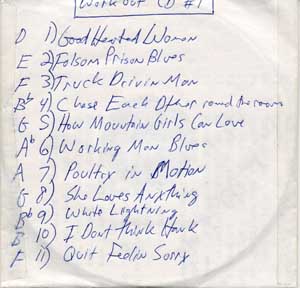 you alternate between picking the strings with the pic, and plucking the strings with either the third finger or second and third finger. This is also commonly referred to as “the claw”. Both rhythm and lead lines can be played with this technique, and practicing along with this CD, without pausing in between songs, somewhat emulated the pace and variations that might happen while performing with a live band.
you alternate between picking the strings with the pic, and plucking the strings with either the third finger or second and third finger. This is also commonly referred to as “the claw”. Both rhythm and lead lines can be played with this technique, and practicing along with this CD, without pausing in between songs, somewhat emulated the pace and variations that might happen while performing with a live band.
Every day I worked diligently in my basement music room, practicing country music standards and technique. I would practice until my right hand felt like it was falling off, or until I felt like throwing my guitar through the window, always managing to stop just prior to either thing happening. My improvement was slow, but steady, and gradually the other players at my weekend gig began to notice. I would practice and do the eBay thing all week long, go downtown to network for a couple of evenings, and head off to Kentucky for the weekends.
Libby’s was a family kind of place with a relaxed atmosphere and served no alcohol. But this didn’t stop some of the band members, me occasionally included, from sneaking a beer or two out back before the shows and during breaks. Hey, we were playing country music at a steakhouse in Kentucky; I don’t think Merle or Hank would disapprove. In all fairness to Libby, who was trying to run this show as professionally as he could, everyone seemed to keep the Budweiser buzz to a dull roar, always making a strong performance the priority (okay, maybe a few times the steel player got a little too loopy and hacked a little). But Budweiser or not, we had a great time. The players and the guest singers always gave it their all, and the crowd, no matter how big or small, always showed appreciation.
I worked at Libby’s for about four or five months through that fall and winter and, in hindsight, it was the best thing that could have happened to me at that point in time. By early spring I felt ready to dig in full bore to the country scene in Nashville and gave my notice. Libby understood why I had to leave, thanked me for my time, and wished me luck.
A couple of years later I was gigging at Tootsies and ran into one of the girls who had been a regular guest singer at Libby’s. Sadly, she informed me that Libby had just passed away at the age of 65. We reminisced about what a great time we always had back in the day, and how much he had cared about music and people. Libby was a sweet old guy and had treated me with the utmost respect. He gave me a chance when I needed it. I will always look back on those days with fondness, and will be forever grateful to have known Libby Knight.
D – Goodhearted Woman slow eighths
E – Folsom Prison Blues medium eighths
F – Truck Drivin’ Man fast eighths
Bb – Chase Each Other Round the Room medium swing
G – How Mountain Girls Can Love fast eighths
Ab – Workingman Blues medium eighths
A – Poultry in Motion medium eighths
G – She Loves Anything fast eighths
Bb – White Lightning medium eighths
B – I Don’t Think Hank Done It This Way medium eighths (Waylon Stomp)
F – Quit Feelin’ Sorry medium swing
When I was 12 years old I was inspired to learn how to play the guitar after hearing the music of Jimi Hendrix. As I began learning, I quickly realized I would have to put a lot of effort into this endeavor to be able to make the kind of music that Jimi inspired me to make. So I dug in, and the more I dug in and applied myself, the better I became at my craft. As I got better, it started to become more fun too. Early on I made the connection that the more I applied myself (by practicing, wood shedding, experimenting, etc.) the more I enjoyed guitar playing. For me, practicing my guitar, and enjoying the act of guitar playing go hand-in-hand, and I never viewed practicing as a chore I had to do.
As the years churned on I never stopped applying myself. I eventually went to Berklee, began playing professionally, and still work at improving and honing my skills 20 years later (even though I can maintain a decent level of proficiency without doing so). While some people along the way have suggested that I practice more than I need to, I disagree. Putting in such a big effort over a long period of time has not only made me a better musician, it’s made me a better person. It’s benefited my life in ways that go way beyond music. If you can teach yourself self-discipline through the mastery of your craft, you will forever have an increased self-discipline in every facet of your life, more patience, problem-solving skills, the list goes on.
In my opinion, too many musicians coming up in the world today learn a bare minimum of proficiency early on and then just coast. So many are consumed by aspirations of fame and fortune that they miss out on the rewarding feeling one can get from just working towards being great at something. Whether you you play music as a career or just for fun, I believe that the more you put into developing your craft, the better your whole life will be. Practice might not make you perfect, but it will make you better.
